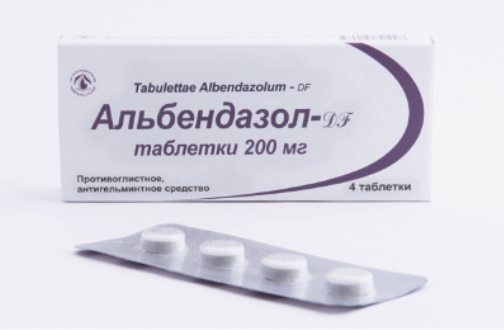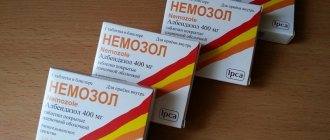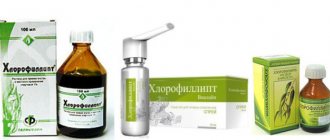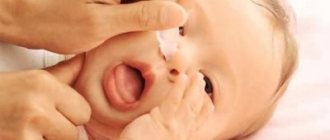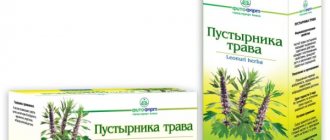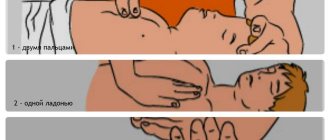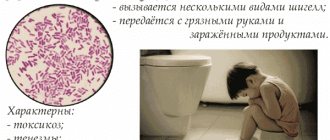Action of the drug in the body
Treatment of worms in children is carried out with the help of antiparasitic medications, which contain toxic substances. The doctor selects an effective remedy and correctly calculates the dosage, which leads to the destruction of helminths without causing harm to the child’s body. Sometimes such treatment is limited to a single dose of 1 tablet.
Pharmaceutical preparations for worms are divided into two types of mechanical action:
- Narrow spectrum drugs. They are prescribed when an accurate diagnosis has been established - the type of parasite and its location in the body. When the medicine enters the body, it acts selectively - it can kill nematodes, but does not have a detrimental effect on cestodes.
- Broad spectrum drugs. Prescribed for mixed types of helminthic infestations, as well as if the presence of a parasite is not detected by test results, but the doctor, taking into account the patient’s complaints and observing obvious signs of helminthiasis, considers it necessary to carry out anthelmintic therapy. Such medications effectively destroy different types of worms.
You can treat worms in a child using chemotherapy drugs. They act differently on worms:
- They block nerve impulses, causing muscle paralysis, after which the helminth is excreted from the body in feces. A remedy for worms with this effect is Piperazine, Pyrantel, Praziquantel.
- They inhibit the absorption of glucose by the parasite, as a result of which it dies from hunger. Tablets against parasites with this effect - Mebendazole, Wormin, Vermox.
- Destroy the cells of the intestinal tract of the helminth - Albendazole, Nemozol, Zentel.
- Antihelminthic drugs with combined effects. The hatching of worms occurs as a result of paralysis and biochemical destruction of their body. Drugs Levamisole, Dekaris.
It is difficult to remove worms from a child if he is under 3 years old using antiparasitic drugs in tablets. A small patient will not be able to swallow the pill or spit out part of it, then the parents will not be able to determine the dose of the anti-worm substance that has entered the body, and the treatment will be ineffective. For parasites, it is better to use syrups/suspensions for young children.
How to get rid of worms in children
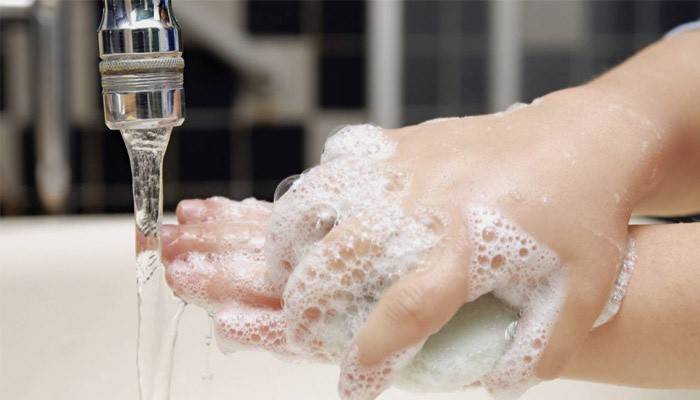
If helminths are found in a child, there is a high probability that all family members have them. Before taking pills for worms, you need to accurately determine the type of parasite; this will help you choose the right method of control. The fact is that different remedies are effective against different helminths. The best treatment is the use of medications. Traditional methods can be used, but they are less effective and often do not prevent parasites from spreading further, so they are recommended to be used as an auxiliary method.
Anthelmintics
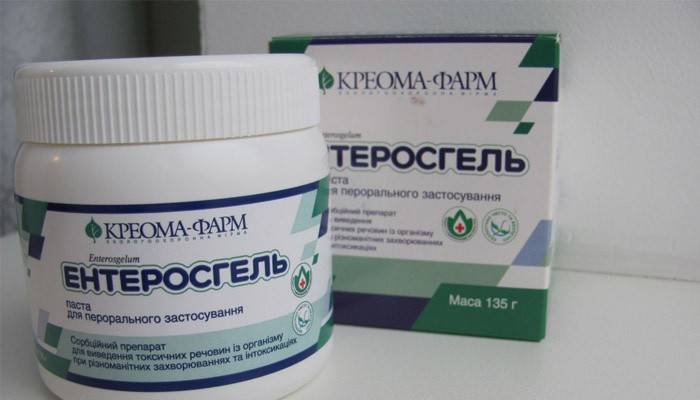
To remove worms from a child, it is necessary to use an integrated approach. First, you need to prepare his body to take special medications: drink sorbents and vegetable oils (linseed, pumpkin) for several days to cleanse him of toxic substances. Next, you should use a targeted anthelmintic agent. These can be “Pyrantel”, “Nemozol”, “Levamisole”, “Albendazole”. After the course, it is recommended to take vitamins and medications to increase immunity, normalize the activity of the gastrointestinal tract, kidney and liver function.
- Meat in foil in the oven: recipes with photos
- Kefir baking recipes
- What diseases does beaver stream treat?
Deworming products for children act differently depending on the active substance. Most of them completely immobilize parasites, making it impossible to feed. Having died, they are excreted along with the feces. Paralysis of muscle fibers is caused by drugs such as Piperazine and Levamisole. Other drugs disrupt the metabolic processes of parasites and also cause their death. Mebendazole and Albendazole have this mechanism of action.
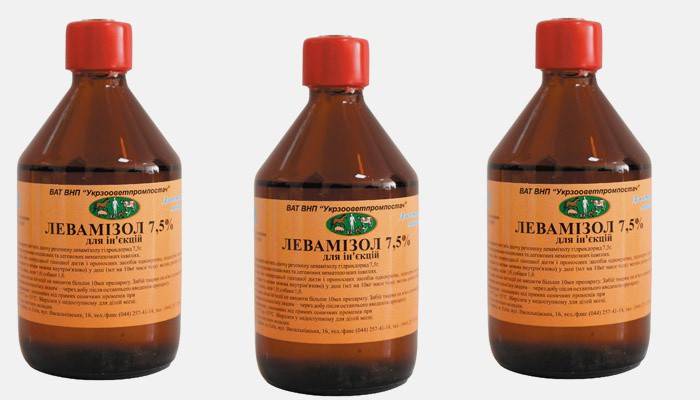
Nemozol
This is a very well-known, effective anthelmintic for children, available in the form of tablets and suspensions. The drug suppresses the biochemical processes in the body of helminths, destroys their cell membrane, causing their death. The dosage is selected by the pediatrician taking into account the age, weight of the baby, and the type of parasite. For example, to treat nematodes in a child over 2 years old, you need to take 1 tablet for 1-3 weeks before or after meals, but to fight roundworms, a single dose of the drug is enough. It is not necessary to take laxatives after treatment.
- How to salt mackerel at home
- DIY rugs made from scraps of fabric
- Can MRI replace colonoscopy?
Pirantel
The medicine is sold in the form of tablets and suspensions. It is prescribed to children for ascariasis, necatoriasis, enterobiasis, trichuriasis. "Pyrantel" acts as follows: it affects the muscles of parasites, immobilizes them and causes muscle paralysis. 1-2 days after the start of treatment, paralyzed helminths can be found in the stool, so it is important to maintain hygiene. The course of treatment depends on the type of parasite. Thus, for the treatment of roundworms, a single dose of 10 mg/kg tablets is recommended.
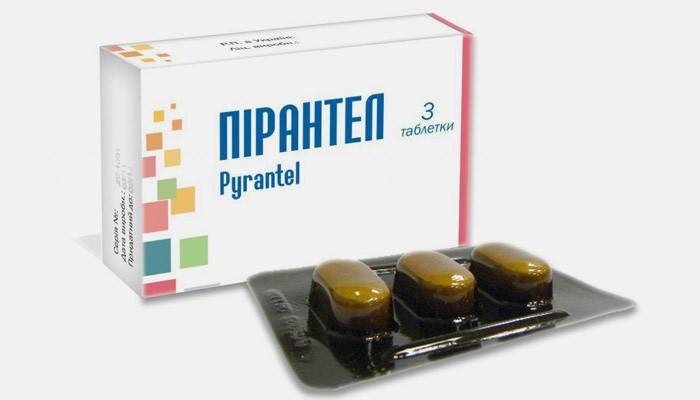
Sorbents for children
When they die, the worms release many toxins, which can cause intoxication of the baby’s body. To alleviate the condition, doctors can prescribe sorbents. They should be taken after a course of treatment with anthelmintic drugs. When they enter the intestines, sorbents bind all poisons, toxins, and harmful substances and remove them out in a short time.
From the first month of life, children can be prescribed Polysorb and Enterosgel. The first product is available in powder form, which must be taken after dilution to the level of a liquid suspension. For children, the drug is measured with a teaspoon. Enterosgel is sold in the form of a gel for mixing to form a suspension and a sweetish paste, ready for use.
Antihelminthic medications up to 2 years
Helminthiasis is typical for children aged 2 years and older. The main reason is curiosity. Children are interested in touching objects with their hands and then putting them in their mouths.

Helminthic infestations from 1 year of age are observed less frequently. Very rarely in younger children. The main reason if a child develops parasites at this age is contact with infected adults (family members) and parents’ neglect of hygiene rules.
How to treat worms in children under 2 years of age? Basically, antiparasitic drugs are designed for patients whose age is 2 years and older.
It is forbidden to give anti-worm tablets to children at the discretion of the parents, without first consulting a doctor. The minimum dose of the safest medicine will be useless, the maximum may lead to problems with the kidneys/liver.
Anti-worm medications for children that are prescribed for the treatment of infants - Piperazine, Pirantel, Nemotsid, Helmintox. They have the lowest toxicity and can be prescribed from 6 months.
Pirantel
The release form of this medicine for worms for a child is a suspension, tablets. Prescribed for the treatment of enterobiasis, ascariasis, hookworm. The drug is absorbed into the blood in the minimum permissible quantities and has a paralyzing effect on worms, and within 24 hours they are eliminated from the body.
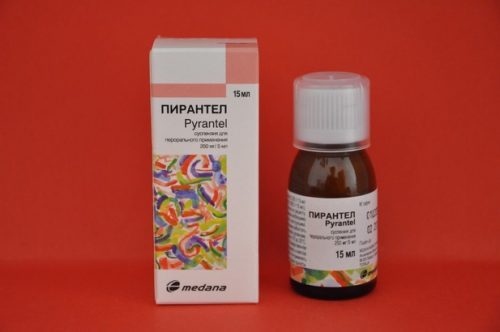
Adverse reactions:
- Lack of appetite.
- Dizziness.
- Lethargy.
- Minor rash.
Piperazine
These deworming tablets for children are good at removing parasites from the youngest patients. A narrow-spectrum drug removes roundworms and pinworms, but does not drive out other types of worms. Piperazine can be prescribed to infants. Paralyzed helminths are eliminated from the body naturally.
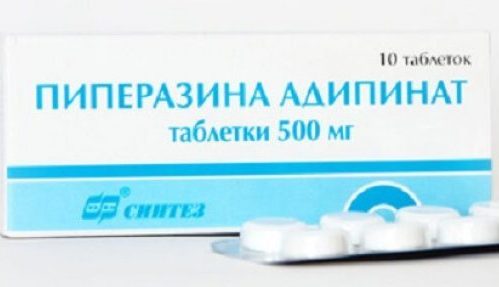
Nemocid
An analogue of Pyrantel, available in tablets/suspensions. Low toxicity, not absorbed into the gastrointestinal tract, this drug is mainly used for worms in children over 2 years of age. It can also be prescribed to younger patients.
Taking Nemocid causes paralysis of parasites and removes worms from a child in a living state, with feces. Parents should take this factor into account and prevent re-infection through feces.
The drug effectively treats:
- Enterobiasis.
- Hookworm.
- Nekatoroz.
- Trichocephalosis.
Helminthox
The active substance in the drug is Pyrantel. Under strict medical supervision, children can be treated even in the first year of life. Prescribed for the following helminthiases:
- Ascariasis.
- Hookworm.
- Enterobiasis.
- Nekatoroz.
- Trichocephalosis.
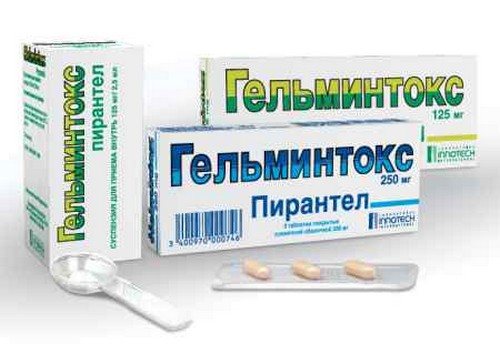
Antihelminthic medications from 2 to 7 years
Parents often ask the doctor to prescribe the best remedy for worms in children, but there is no universal drug. The medicine will be effective if it is prescribed after the fact - the type of worm has been established, treatment occurs according to the prescribed regimen. Helminthiasis is widespread in children who attend kindergarten/school. Infection occurs through contact with infected peers or through everyday contact.
Let's consider pediatric anthelmintic drugs for treating patients from 2 to 7 years old.
Dekaris
Produced in tablet form. An analogue of the drug Levamisole. A universal medicine, it has an immunostimulating effect - it provokes the production of protective antibodies. Removes several types of worms from a child.
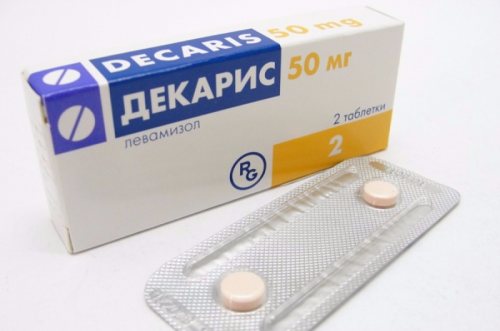
Used for parasitic infestations such as:
- Ascariasis.
- Enterobiasis.
- Toxoplasmosis.
- Trichostrongylosis.
- Nekatoroz.
- Hookworm.
The drug is not prescribed until 3 years of age. Adverse reactions of the body are associated with the death of parasites - nausea, diarrhea, convulsions, allergies, fever.
Wormil
The active substance on which the drug is made is albendazole. Release form: chewable tablets/syrups. The medicine is prescribed for children aged 2 years and older. Vormil provokes the death of helminths in the body, acts on parasites in different stages of development - kills adults, larvae/eggs. It is classified as a harmless, broad-spectrum anti-worm drug; it does not harm children if the dose is calculated correctly.
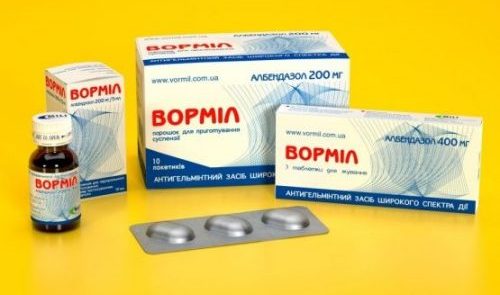
Vermox
Has a narrower range of effects on parasites compared to Vormil. It has a low toxic composition. It is used to treat mixed helminthiasis. Prescribed to children aged 3 years and older. Drug analogues:
- Vormin.
- Vermocar.
- Mebendazole.
- Telmox.
- Mebex.
- Nemozol.
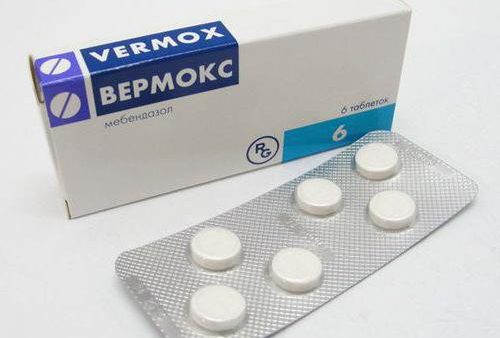
Glistogon
There are anthelmintic drugs made from natural ingredients. The anthelmintic removes larvae/eggs and adult worms that parasitize the intestines from the body. The drug should not be given to children under 5 years of age. The composition of Glistogon includes:
- walnut extract;
- carnation;
- pumpkin seeds;
- garlic;
- magnesium sulfate;
- sucrose.
Biltricide
The tablets are made on the basis of praziquantel and are not prescribed to children under 4 years of age. An effective drug in the treatment of trematodes and cestodes. The action of Biltricide is that it penetrates the worm cells, they begin to break down, causing the death of the parasite. Side effects of the drug:
- Pain in the gastrointestinal tract.
- Lack of appetite.
- Nausea, vomiting.
- Bloody discharge from the intestines.
- Fever.
- Pain in muscles and joints.
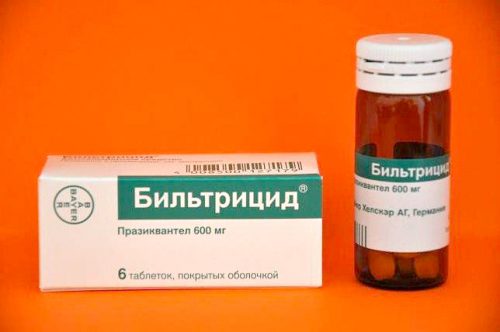
Zentel
Broad-spectrum anthelmintic and antiprotozoal medicine for children over 2 years of age. Destroys intestinal and tissue types of parasites, having a detrimental effect on adult helminths, larvae and eggs. The drug is available in two forms, so parents can choose what to give their child - a tablet or syrup. Zentel can effectively remove several types of parasites. They treat infestations such as:
- Ascariasis.
- Hookworm.
- Hymenolepidosis.
- Enterobiasis.
- Clonorchiasis.
- Nekatoroz.
- Neurocysticercosis.
- Opisthorchiasis.
- Strongyloidiasis.
- Taeniasis.
- Trichocephalosis.
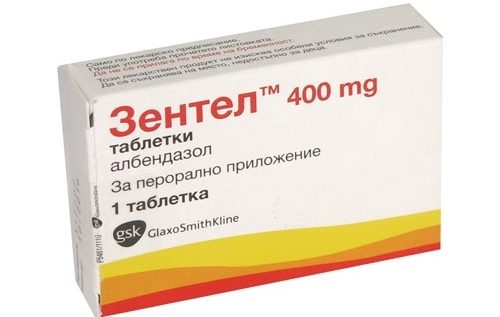
Medicines for worms for children 2 years of age
It is still advisable to give them medications in suspensions. But it is already possible to prescribe medications in tablets if they are first crushed into powder . For ascariasis, pyrantel and mebendazole are prescribed - a medicine for worms for children over 2 years old; for giardiasis - makmiror (the tablet is crushed). From 2 years of age, you can give albendazole - preferably in the form of a suspension.
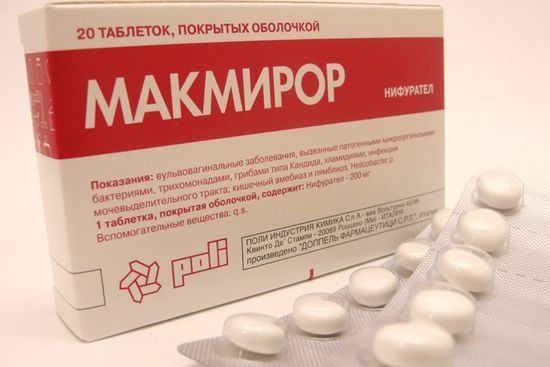
Medicines for worms for older children and adults
These are drugs albendazole, mebendazole, praziquantel. They are available in tablets. Albendazole is several times more effective than mebendazole. Albendazole chewable tablets for children have an orange flavor.
Praziquantel is prescribed from the age of 4, but in practice they try not to prescribe it until the age of 7-10 and only in a hospital.
What medications are given to children under 2 years of age to prepare for treatment for worms?
These are herbal choleretic drugs in syrup, ursodeoxycholic acid - to protect liver cells, in suspension, pancreatin - a digestive enzyme in capsules (the contents of the capsule are mixed with food), enterosgel - a sorbent in the form of a paste, preparations with beneficial bacteria in the form of capsules (the contents are dissolved in water or milk) and in the form of drops.
Are there medications to prevent worms in children?
Medications are not recommended for prophylactic purposes.
They have a point of application and will not work if there is no invasion. However, their side effects may occur. This is an allergic reaction, stool disorders, increased liver enzymes.
Antihelminthic medications for children over 7 years of age
Symptoms and treatment of helminthiases at the age of 1 year or 7 years have a general similarity - the same clinical picture. The only difference is which anti-worm medicine for children to use at a certain age.
At 7 years old, you can give your child any of the drugs listed above. The course of treatment is selected on an individual basis; the dose for treating older children will significantly exceed the amount of the drug for infants.
WHO has approved a recommended list of anthelmintic drugs. The list includes drugs with generally accepted international names:
- Albendazole.
- Levamisole.
- Mebendazole.
- Pirantel.
